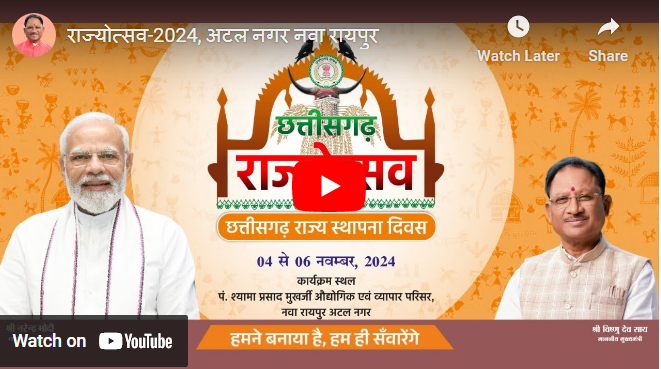United Nations/New Delhi, (Thestates.news)| India on Saturday stressed that a more representative United Nations fit for the contemporary era is essential, and offered to share its developmental experiences, including of rapid digitalisation with the Global South, even as it slammed Pakistan for cross-border terrorism and warned Islamabad of consequences.
External Affairs Minister S Jaishankar, giving India’s statement at the UN General Assembly, said that the theme of the UNGA session is ‘Leaving no one behind’ which means advancing peace, ensuring sustainable development and strengthening human dignity. “This cannot be delivered by a UN paralyzed when faced with division, conflict, terrorism and violence. Nor can it be advanced if access to food, fuel and fertilizer is jeopardized.”
He said the world has changed profoundly and so have its concerns and opportunities since the founding of the UN 80 years ago.
“Large parts of the world cannot be left behind when it comes to deciding the key issues of our times. An effective and efficient UN, a more representative UN and a UN fit for purpose in the contemporary era, is essential.
“Let us therefore send out a clear message from this UNGA Session: we are determined not to be left behind. By coming together, sharing experiences, pooling resources and strengthening our resolve, we can change the world for the better,” he stated.
Stating that if the world is to ensure global security and stability, “then it is essential that those who seek to lead, set the right example”.
“Nor can we countenance egregious violations of our basic tenets.”
“Terrorism is antithetical of everything that the world stands for. All its forms and manifestations must be resolutely opposed. The sanctioning of global terrorists by the United Nations should also not be impeded for political reasons.”
Slamming Pakistan roundly, a day after its PM Shehbaz Sharif launched a tirade against India and raked up the Kashmir issue and accused India of “Islamophobia”, the EAM said in words laced in sarcasm:
“Many countries get left behind due to circumstances beyond their control. But some make conscious choices with disastrous consequences.
“A premier example is our neighbour, Pakistan. Unfortunately, their misdeeds affect others as well, especially the neighbourhood.
“When this polity instils such fanaticism among its people, its GDP can only be measured in terms of radicalization and its exports in the form of terrorism.
“Today, we see the ills it sought to visit on others consume its own society. It can’t blame the world; this is only karma”, he said.
Giving a stern warning to Pakistan, he said:
“A dysfunctional nation coveting the lands of others must be exposed and must be countered. We heard some bizarre assertions from it at this forum yesterday (referring to the Pakistan PM’s statement).
“So let me make India’s position perfectly clear.
“Pakistan’s cross-border terrorism policy will never succeed. And it can have no expectation of impunity. On the contrary, actions will certainly have consequences.”
He also cut short Pakistan’s attempt to bring in the UN into the Kashmir issue, stating that the only issue to be resolved between the two nations is that of “the vacation of illegally occupied Indian territory by Pakistan. And of course the abandonment of Pakistan’s longstanding attachment to terrorism.”
EAM Jaishankar said India is seeking reform of the UN “Not because it is a competition for influence or squabble for positions. But because, if we carry on like this, the state of the world is only going to get worse. And that could mean that more of us are going to be left behind. “
Giving the Indian government’s example of providing piped water, gas connections, toilets and proper homes to the people, and also extending help to the farmers and local businesses, he offered to share India’s experiences with the other countries.
“A digital public infrastructure and a people’s pharmacy are today examples of what India can readily offer to the world. It is also an alternative vision where technology is used to empower, not to dominate. “
Citing India’s proactive outreach to the Global South, he said India has convened three Global South Summits, the most recent in August of 2024.
He also cited India’s contribution to the well-being of the global commons and responding to the pressing needs of those in distress.
“This has ranged from undertaking projects in 78 nations, providing resources to neighbours and responding to HADR situations, to supplying medicines and ensuring maritime safety and security.”
“Given the scale of transformation underway in India, each of these dimensions underline that the world’s problems can indeed be tackled. And that by working together, we can surely create a larger lifting tide,” EAM stated.
“When India lands on the moon, rolls out its own 5G stack, dispatches vaccines worldwide, embraces fintech or houses so many Global Capability Centres, there is a message here.
“Our quest for a ‘Viksit Bharat’ or developed India will understandably be followed closely,” he added.
“An important cause of many getting left behind has been the unfairness of the current globalization model. Over-concentration of production has hollowed out many economies, impacting their employment and social stability,” he said, calling for democratizing of the global production process, building of resilient supply chains, ensuring trusted digital services, and espousing an open-source culture. “All these promote widespread prosperity. There are economic answers, just as there are social ones.”
“The UN has always maintained that peace and development go hand in hand. Yet, when challenges to one have emerged, due regard has not been given to the other.
“Clearly, their economic implications for the weak and vulnerable need to be highlighted. But we must also recognize that conflicts themselves must be resolved. The world cannot be fatalistic about the continuation of violence on a large scale, no more than be impervious to its broader consequences,” he said, referring to the Ukraine and Middle East conflicts.
“Whether it is the war in Ukraine or the conflict in Gaza, the international community seeks urgent solutions. These sentiments must be acknowledged and acted upon.” (UNI)
Friday, July 4, 2025
India calls for more representative UN, warns Pakistan of consequences of cross-border terrorism at UNGA
R.O.NO.13286/74
×
![Popup Image]()





66c793ee-dbba-42f8-b0a4-f643af17df5c


- CM Dr. Yadav Congratulates International Wrestler Priyanshi for Winning Gold in Vietnam
- CM Dr. Yadav to Gift Development Projects in Anuppur and Singrauli
- CM Dr. Yadav to Transfer Funds for Laptops to Meritoeous Students on July 4
- Proposal for Frozen Potato Products Unit in Madhya Pradesh with ₹3,800 Crore Investment
- It is Essential to Familiarize the Young Generation with the History of Emergency: CM Dr. Yadav
Recent Posts
- PM Narendra Modi addresses the Parliament of Ghana
- Pranjali Surduse’s Double Gold Triumph for MIT-ADT University!
- Odisha Seeks Centre’s Backing for Science City in Bhubaneswar
- Chhattisgarh Forest Department Reaffirms Its Unwavering Commitment to Transparent, Scientific, and Community-Centric Implementation of Forest Rights
- Shyam Bihari Jaiswal’s Intervention Brings Relief to Pharmacists: Fee Increase Rolled Back
Recent Comments
No comments to show.
VIDEO
© 2025 The States News - Design by Rahul 9407771000.







